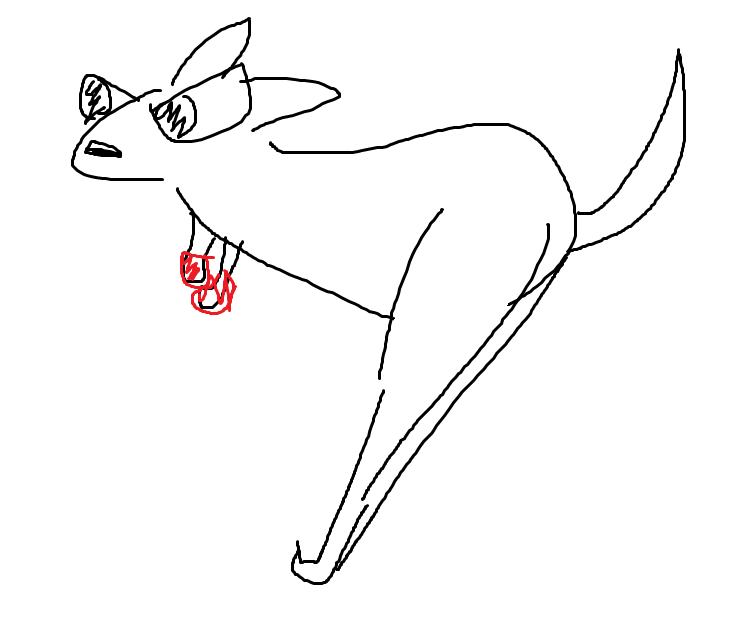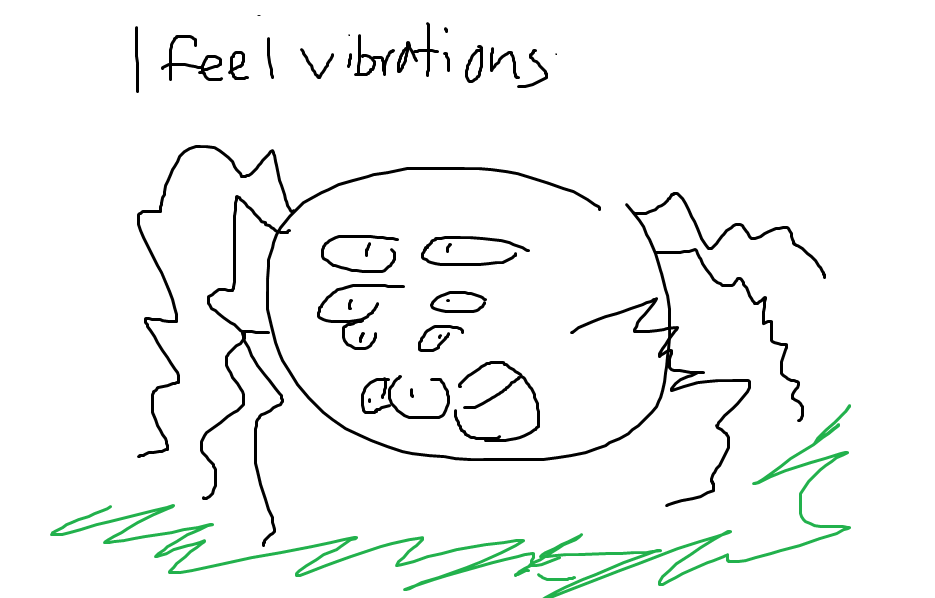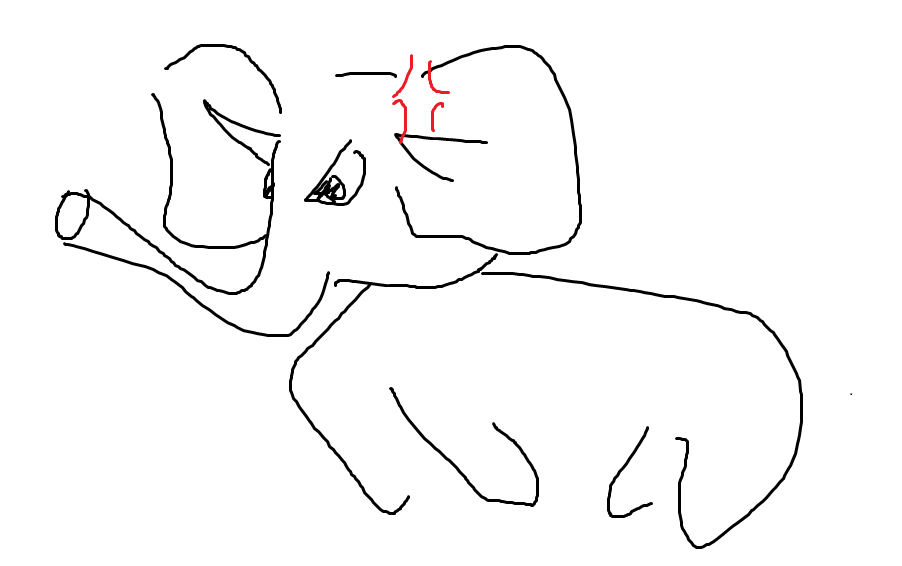Bio11- Unit 1
0.0(0)
Card Sorting
1/223
Earn XP
Description and Tags
The Needs & Characteristics of Living Things. WBOT= Will be on test
Last updated 7:49 PM on 4/7/24
Name | Mastery | Learn | Test | Matching | Spaced | Call with Kai |
|---|
No analytics yet
Send a link to your students to track their progress
224 Terms
1
New cards

What do all organisms need to survive? (5)
Hint: COWNS
Water, nutrients, space to live, oxygen, and C02
Water, nutrients, space to live, oxygen, and C02
2
New cards
What does water help organisms with?
Do cellular activity (ex. DNA replication, cell division, etc.)
3
New cards
What do can some organisms survive without?
Sunlight
4
New cards
Are plants considered organisms?
Yes!
5
New cards
What is an organism?
An individual animal, plant, or single-celled life form

6
New cards
Do plants still need to make nutrients, because they already make their own food through photosynthesis?
Yes.
7
New cards
What purpose do nutrients give the organism?
What they need to grow!!!

8
New cards
What can organisms be?
Autotrophs (producers), and heterotrophs (consumers)
9
New cards
What are some examples of autotrophs (producers)
Plants, and some bacteria
10
New cards
What are some examples of heterotrophs (consumers)
Carnivores (eats animals)
Herbivores (eats plants)
Omnivores (eats plants and animals)
Herbivores (eats plants)
Omnivores (eats plants and animals)
11
New cards
What is autotrophs?
Producers.
(auto-matically make food for themselves)
(auto-matically make food for themselves)

12
New cards
What is heterotrophs?
Consumers
(I can only do hetero -- ONE THING -- which is eat what autotrophs produce)
(I can only do hetero -- ONE THING -- which is eat what autotrophs produce)

13
New cards
Space to live provides organisms with…?:
A place where they can get food, water, and shelter
14
New cards
Organisms often ____ for space with other organisms?
FIGHT!!! COMPETE!!!

15
New cards
What do plants need for photosynthesis?
Carbon dioxide
16
New cards
What do animals AND plants need oxygen for?
Cellular respiration
17
New cards
Do all organisms need air to live in environments, where air is unavailable?
Not all.
18
New cards
TRUE OR FALSE? All organisms are made of cells.
True! :)
19
New cards
TRUE OR FALSE? All organisms do not contain homeostasis
False
20
New cards
TRUE OR FALSE? All organisms obtain and use energy
True!
21
New cards
TRUE OR FALSE? All organisms do not reproduce
False
22
New cards
TRUE OR FALSE? All organisms pass their traits to offspring.
True
23
New cards
TRUE OR FALSE? All organisms don’t grow.
Wth. False!

24
New cards
TRUE OR FALSE? All organisms respond to changes in their environment.
True!
25
New cards
TRUE OR FALSE? All organisms change over time as a species.
True

26
New cards
All organisms have *these* characteristics…(8)
Hint: Birds CHERP and it went GRC. I was surprised.
Hint: Birds CHERP and it went GRC. I was surprised.
Change over time as a species
maintain Homeostasis
obtain and use Energy
Reproduce
Pass traits to offspring
Grow
Respond to changes in their environment
are made of Cells
maintain Homeostasis
obtain and use Energy
Reproduce
Pass traits to offspring
Grow
Respond to changes in their environment
are made of Cells
27
New cards
Are all organisms made of cells?
Yeah
28
New cards
Types of cells that organisms are made of
Unicellular and multicellular
29
New cards
What’s unicellular cell?
Simple
Single cell.
Ex. bacteria
Single cell.
Ex. bacteria
30
New cards
What is multicellular?
Complex
Made of many cells
(Ex. animals, plants)
Made of many cells
(Ex. animals, plants)
31
New cards
All organisms can maintain homeostasis. Define homeostasis
Ability to maintain ideal internal temperature in response to environmental changes
32
New cards
What are examples of homeostasis in humans?
In hot conditions, we sweat to cool off
In cold conditions, we shiver to stay warm
In cold conditions, we shiver to stay warm

33
New cards
For our bodies to function properly, we need to be in ________
Homeostasis
34
New cards
TRUE OR FALSE?
All organisms do not use energy.
All organisms do not use energy.
False bruddah
35
New cards
What’s the cell’s energy currency?
ATP (adenosine triphosphate)
36
New cards
What does ATP do?
Hint: Daily fun and repairs or replaces damaged
Hint: Daily fun and repairs or replaces damaged
Powers daily functions and repair/replaces damaged cells

37
New cards
What does ATP stand for? (WILL BE ON TEST!)
Adenosine triphosphate
38
New cards
True or false? Organisms can reproduce
Yes duh
39
New cards
Define sexual reproduction
Two parents produce offspring w/ different genes
40
New cards
Define asexual reproduction
Single parents produces offspring identical to parent (clone)
41
New cards
How do organisms grow?
Hint: isn
Hint: isn
Cells increase in size or number
42
New cards
How do organisms pass traits to their offspring?
Traits r passed on thru genes found in the DNA (deoxyribonucleic acid)
43
New cards
When do organisms pass traits to offspring?
Asexual or sexual reproduction
44
New cards
TRUE OR FALSE:
Bacteria are unicellular therefore they cannot grow.
Bacteria are unicellular therefore they cannot grow.
False.
Because bacteria, which is an organism, can grow larger.
(Remember ALL organisms GROW!)
Because bacteria, which is an organism, can grow larger.
(Remember ALL organisms GROW!)
45
New cards
Define stimulus
Any @@**activity**@@ that brings a @@**response**@@

46
New cards
What are examples of INTERNAL stimulus
Hunger (stimulus) → tells u to eat (response)
Thirst (stimulus) → tells u to drink wota (response)
Thirst (stimulus) → tells u to drink wota (response)
47
New cards
Examples of EXTERNAL stimulus (WILL BE ON THE TEST!!)
Light (stimulus) → tells u to stay awake (response)
Sound (stimulus) → tells u to be aware of ur surroundings (response)
Sound (stimulus) → tells u to be aware of ur surroundings (response)
48
New cards
How do all organisms, as a species, change over time?
Natural selection
49
New cards
Can individuals evolve?
No, only **populations** can
50
New cards
What is the smallest unit of life?
Cells
51
New cards
What type of cell is fat tissue made of? (This is a check-in question)
Fat cells
52
New cards
What are muscles also known as?
Tissues
53
New cards
Can all tissues be muscles
Not all
54
New cards
TRUE OR FALSE? Specialized cells carry out specific function
True! :D
55
New cards
Can organisms be unicellular, which means that they have no cell specialization?
Ofc.
56
New cards
Define organs
Tissues that are organized into larger structures w/ one main function
57
New cards
What are examples of tissues that are organized into larger structures with one main function?
Organs:
Lungs, heart, brain, liver, kidney
Lungs, heart, brain, liver, kidney
58
New cards
How many kind(s) of tissue are organs made of?
Multiple!
59
New cards
What’s an organ system?
Groups of organs that have related functions
60
New cards
The cardiovascular system is made of _______
organs
61
New cards
Your heart is made of what tissue(s)?
a) epithelial tissue
b) connective tissue
c) nervous tissue
d) muscular tissue
e) all of the above
a) epithelial tissue
b) connective tissue
c) nervous tissue
d) muscular tissue
e) all of the above
e. The heart are made of multiple tissues.
62
New cards
What’s an atom?
An atom is the smallest unit of matter
63
New cards

What is considered non-living and living?
Anything before the cell is non-living, and whatever is after that (including the cell) is living
64
New cards
What is a cell?
Smallest unit of life, that has all the characteristics of living things
65
New cards
What is a cell? pt.2
Specialized cells to carry out specific functions
Ex. muscle cells, epithelial cells, fat cells
Ex. muscle cells, epithelial cells, fat cells
66
New cards
What are tissues?
Groups of cells that are similar in shape and function
Ex. Epithelial tissue: skin that covers the outside surface of your body
Ex. Epithelial tissue: skin that covers the outside surface of your body
67
New cards
What are organs?
Tissues that are organized into larger structures that have one function
Ex. heart pumps blood thru ur body
Ex. heart pumps blood thru ur body
68
New cards
What are organs systems?
Groups of organs that have related functions
Ex. circulatory system includes the heart, veins, etc
Ex. circulatory system includes the heart, veins, etc
69
New cards
TRUE OR FALSE? (Check-in question)
A cell that lines your small intestine will have a different structure and function from a cell that lines your nostrils
A cell that lines your small intestine will have a different structure and function from a cell that lines your nostrils
True obv
70
New cards
What are prokaryotes?
Simple, unicellular organisms
Has no membrane-bound organelles (no nucleus.. no ribosome)
All prokaryotes are bacteria (but not all bacteria are unicellular!)
Has no membrane-bound organelles (no nucleus.. no ribosome)
All prokaryotes are bacteria (but not all bacteria are unicellular!)
71
New cards
TRUE OR FALSE?
Is all bacteria unicellular organisms?
Is all bacteria unicellular organisms?
False. Bacteria is **most commonly** unicellular but not **ALWAYS**. Ex. cyanobacteria
72
New cards
What are eukaryotes?
Complex organisms (most living things r eukaryotes)
Can be unicellular/ multicellular
Contains organelles surrounding membranes (including nucleus)
Can be unicellular/ multicellular
Contains organelles surrounding membranes (including nucleus)
73
New cards
Check in question
U find a mystery unicellular organism under your microscope. You notice it’s membrane-bound organelles. What type of organism is it?
A) Eukaryote
B) Prokaryote
C) It’s not an organism
U find a mystery unicellular organism under your microscope. You notice it’s membrane-bound organelles. What type of organism is it?
A) Eukaryote
B) Prokaryote
C) It’s not an organism
A. “Membrane-bound”
74
New cards
What’s a unicellular organism?
Has only one cell
Can be a prokaryote (bacteria) or a eukaryote
Carries out all functions required to maintain life of organism
NO cell specialization
Can be a prokaryote (bacteria) or a eukaryote
Carries out all functions required to maintain life of organism
NO cell specialization
75
New cards
Check in question
U find a mystery unicellular organism under your microscope. What MUST be true about this organism?
A) It’s a bacteria cell
B) It’s a eukaryote
C) It’s a prokaryote
D) It has no cell specialization
U find a mystery unicellular organism under your microscope. What MUST be true about this organism?
A) It’s a bacteria cell
B) It’s a eukaryote
C) It’s a prokaryote
D) It has no cell specialization
D.

76
New cards
What is a multicellular organism?
Made of more than one cell
Cells develop differently thru cell differentiation so they have dif appearances that suit their functions
They have cell specialization because of cellular differentiation
Cells develop differently thru cell differentiation so they have dif appearances that suit their functions
They have cell specialization because of cellular differentiation
77
New cards
What’s cell differentiation?
The PROCESS of cells developing differently
Result of gene expression
Result of gene expression
78
New cards
What is cell specialization?
Cells specialized to perform certain functions
79
New cards
Check in question
A neuron cell and a smooth muscle cell look and function differently from each other, because of what process?
A) Cell differentiation
B) Cell specialization
C) Mutations in the DNA
A neuron cell and a smooth muscle cell look and function differently from each other, because of what process?
A) Cell differentiation
B) Cell specialization
C) Mutations in the DNA
A. It’s the process
80
New cards
What is a neuron/nerve cell
Sends info from one part of the body to another part
Very long et thin
Very long et thin
81
New cards
What is a red blood cell
Shaped like flattened disks so they can easily flow thru blood vessels
Carries oxygen thru the body
Those with sickle cell anemia: sickle shaped red blood cells.
^Because of their change in appearance ability to carry oxygen is now negatively affected
Carries oxygen thru the body
Those with sickle cell anemia: sickle shaped red blood cells.
^Because of their change in appearance ability to carry oxygen is now negatively affected
82
New cards
What is a sperm cell
Fertilizes the egg cell
Strong tail for quick swimming, distinct head helps it enter the egg cell
Strong tail for quick swimming, distinct head helps it enter the egg cell
83
New cards
What is gene expression
The process a gene is switched on or off, resulting in dif proteins being made
(ex. melanin switched off, it’s not in the heart)
(ex. melanin switched off, it’s not in the heart)
84
New cards
Check in question
Which of the following cells share the same DNA (assume they all from ur body)
\
A) Connective tissue cell and white blood cell
B) Epithelial cell and intestinal cell
C) Red blood cell and smooth muscle cell
D) All of the above
E) None of the above
Which of the following cells share the same DNA (assume they all from ur body)
\
A) Connective tissue cell and white blood cell
B) Epithelial cell and intestinal cell
C) Red blood cell and smooth muscle cell
D) All of the above
E) None of the above
D
85
New cards
TRUE OR FALSE:
Most cells in ur body have the same DNA
Most cells in ur body have the same DNA
True!!! :D
86
New cards
TRUE OR FALSE:
Cells use only the DNA they need; the rest is inactive
Cells use only the DNA they need; the rest is inactive
True.
87
New cards
TRUE OR FALSE:
Skin cells use the DNA that codes for melanin (skin pigment that protects from UV light)
Skin cells use the DNA that codes for melanin (skin pigment that protects from UV light)
True
88
New cards
TRUE OR FALSE?
Heart cells don’t need melanin, so it is “turned off” in heart cells
Heart cells don’t need melanin, so it is “turned off” in heart cells
Tru . Because it doesn’t need to be protected from the sun because it’s already protected by the rib cage
89
New cards
What are stem cells?
Cells that can become any cell in the body because they haven’t undergone cell differentiation yet
90
New cards
What can stem cells be used for?
Repair damaged organs and cure some diseases
91
New cards
What are current scientists still learning about stem cells?
How to regrow limbs using stem cells
92
New cards
What are the differences between prokaryotes and a eukaryotes (WBOT)
Prokaryote: No membrane-bound organelles
Eukaryote: Membrane-bound organelles
\
Prokaryote: Unicellular
Eukaryote: Multicellular/Unicellular
\
Prokaryote: Simple
Eukaryote: Complex
Eukaryote: Membrane-bound organelles
\
Prokaryote: Unicellular
Eukaryote: Multicellular/Unicellular
\
Prokaryote: Simple
Eukaryote: Complex
93
New cards
What are the differences between unicellular and multicellular organisms
(WBOT)
(WBOT)
Unicellular organisms: Only 1 cell
Multicellular organisms: 1/+ cell
\
Unicellular organisms: No cell specialization=one cell need to do all the functions needed to maintain life of the organism
Multicellular organisms: Has cell specialization because of cell differentiation, and dif appearances that suit their function
Multicellular organisms: 1/+ cell
\
Unicellular organisms: No cell specialization=one cell need to do all the functions needed to maintain life of the organism
Multicellular organisms: Has cell specialization because of cell differentiation, and dif appearances that suit their function
94
New cards
What is the difference between cell differentiation and cell specialization?
Cell differentiation: The process cells develop differently
Cell specialization: Result of cell differentiation that cells r specialized to perform specific functions
Cell specialization: Result of cell differentiation that cells r specialized to perform specific functions
95
New cards
Explain the process of cell differentiation in more detail
Stem cell changes into a more specific one (ex. turn into red blood cell)
96
New cards
Is an adaptation positive or negative to the organisms survival and reproductive ability in its environment?
Always positive.
97
New cards
What’s an adaptation of a kangaroo?
Powerful back legs that can jump long distances

98
New cards
What’s an adaptation of a spider?
Can sense vibrations in the ground

99
New cards
What’s an adaptation of a elephant?
Large tusks for defense

100
New cards
What’s an adaptation of a cheetah?
Teeth designed for eating meat
